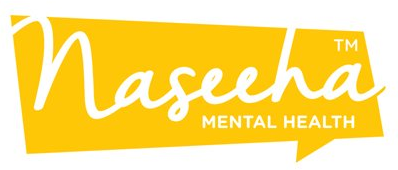
“Here For You” – Naseeha Mental Health
By: Ismail Shaikh
“Barriers such as stigma and a lack of awareness and knowledge about mental health have often prevented members of the Muslim community from seeking mental health services and support.”
For Naseeha Mental Health, ‘here for you’ is more than just a social media hashtag. It reflects Naseeha’s nearly 15-year presence as the first line of contact for mental health services for the North American Muslim Community. Linguistically, ‘naseeha’ is a comprehensive word encompassing the spiritual purification of the heart, advising others appropriately, and sincerely wanting good for others. Over the past decade and a half, the team at Naseeha has tirelessly personified these principles while serving the mental health needs of Muslim communities.
Barriers such as stigma and a lack of awareness and knowledge about mental health have often prevented members of the Muslim community from seeking mental health services and support. Meanwhile, with the rise of new challenges in a post-9/11 world, the needs of the North American Muslim community have only intensified. Young Muslims commonly find themselves feeling anxious and stressed, confused about negative media portrayals of their Islamic identities, and suffering a cultural and generational gap between themselves and their parents. But regrettably, there is often a lack of culturally-competent mental health resources available to help them, resulting in a desperate need to fill the gap.
“To this day, a young Muslim or their parent can call the organization’s anonymous, confidential, and toll-free number and speak to a trained Muslim counselor in a safe space to discuss their concerns and receive competent, caring, empathic, and non-judgmental support.”
In 2006, Naseeha answered these challenges by launching its first service – North America’s first Muslim youth helpline. Because of this resource, Muslim youth and their parents no longer have to suffer in silence. To this day, a young Muslim or their parent can call the organization’s anonymous, confidential, and toll-free number and speak to a trained Muslim counselor in a safe space to discuss their concerns and receive competent, caring, empathic, and non-judgmental support.
Medical student and counselor for Naseeha, Taaha Muhammad recollects one such phone call with a teenage girl.
“She sought support for her low mood,” recalls Taaha. “She said life had been very tough lately and she is having trouble coping. Moreover, her parents would shrug it off as ‘she should just pray more.’ She wanted tips to help her feel better and what to do next.”
Taaha provided her with positive coping strategies and informed her of the role family doctors play as first-line support for mental health issues—a role the medical student had been unaware of. He proudly recalls her gratitude for his help.
“A team of Muslim psychotherapists, social workers, and clinical psychologists can be found on the front lines, providing clinical services to the community.”
In 2017 alone, Naseeha received approximately 18,000 such calls with callers speaking to trained counselors about issues such as bullying, substance abuse, mental health challenges, academic stress, pornography, and relationship conflicts. Currently, around 35 percent of calls are about mental health issues. In fact, the organization has witnessed an increase in calls to its helpline compared to previous years as it focuses on raising public awareness of its mental health supports and services. For instance, 2017 saw a 23 percent increase in calls compared to the previous year.
But the helpline is only one of the numerous ways Naseeha is serving the mental health needs of the North American Muslim community. A team of Muslim psychotherapists, social workers, and clinical psychologists can be found on the front lines, providing clinical services to the community. One such service is the ‘Grief Circle’ led by Maryum Rahman, a registered psychotherapist. This group, held in locations across North America, is a safe place for members of the Muslim community to talk about loss and receive support on how to process it.
“I would say the most profound thing (about the grief circles) are how much attendees find it impactful by relating to one another, despite having just met and despite having family members grieving the same loss,” reports Rahman.
Naseeha also does education and outreach work in schools, mosques, community centers, and at conferences across North America. In the last two years alone, its education and outreach team has conducted over 100 workshops for the North American Muslim Community. The team is also active in the area of research related to Muslim mental health and in providing training and assistance to educators, social service workers and counselors. Naseeha has demonstrated significant achievement, leadership, and commitment to serving the Muslim community, resulting in its nomination as an award finalist for Charity of the Year at the 2018 Max Gala Awards.
For more information about our services or if you’d like to know how to help, please visit our website at www.naseeha.org. To be the first to know about upcoming events, news related to mental health and the impact of our work, click here to join our mailing list.
About the Author:
 Ismail Shaikh is a Registered Social Worker on an Assertive Community
Ismail Shaikh is a Registered Social Worker on an Assertive Community
Treatment Team in Toronto, Canada. He is part of Naseeha Mental Health’s
Education & Outreach team, conducting workshops for communities across the Greater Toronto Area. He also runs a virtual private practice part-time at www.carekhalifah.com
